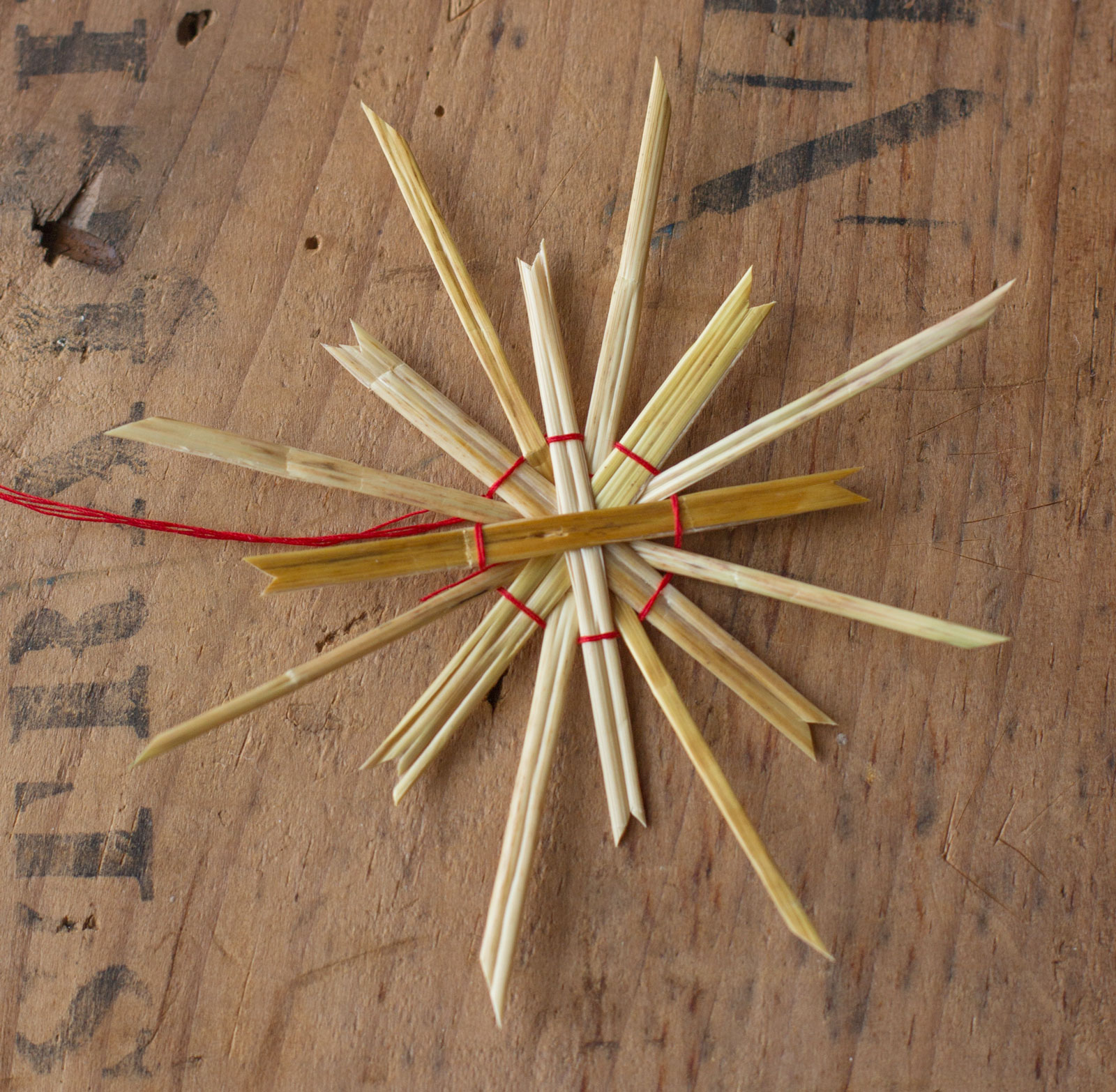APRIL 17, 2024 – (Cont.) In retrospect I’m interested in the origins of my own personality traits, good and bad; or if not the origins necessarily, perhaps their first manifestations. On the plus side, I’d always had a modicum of empathy for my peers. If another kid got hurt or dissed or bullied, no matter who it might be (except my kid sister, whom I myself bullied mercilessly), I’d feel sorry for the kid; maybe not sorry enough, sometimes, to actively assist or protect or interfere, but I have distinct memories of feeling bad, and how “feeling bad” actually . . . felt.
One such experience occurred on our way to school in December. It was a Monday, and over the weekend Bobby and his family had spent time with his grandparents. During the visit they’d made Christmas ornaments out of straw and red thread; for example, a wreath, a sleigh, or a star. Bobby had made a straw star and fastened it to his jacket zipper. He was proud of his work, which I had to admit was well-done, though I suspected it reflected his grandmother’s involvement. The enthusiasm and feeling with which he described the weekend project left a positive impression on me. It turned out that Bobby Snyder, who could get on your nerves at times and found it easy to rough-house when you simply wanted to explore on your bike, was actually an okay kid. Better than okay, actually. He revealed that he wasn’t going to grow up to be like his dad, who seemed cold-hearted and unsociable. In fact, I thought, how many other boys did I hang out with who talked fondly about an afternoon making Christmas decorations with their grandparents?
For the next several days that week to and from school, Bobby’s star with the red thread was a cheerful symbol of the Christmas season. More than that, the star was a reminder that despite all his shortcomings, Bobby was a decent kid, and I was lucky to have him as a chum.
But then a few days later on our way to school some kids from another neighborhood crossed our path. They started picking on Bobby and me, and we had to tangle with them and push them away. While I was dealing with one of the ruffians—whose bark turned out to be much larger than his bite—one of the other fourth-grade toughs was taking a bigger bite out of Bobby. Bobby fended well for himself and the bully soon moved on but not before wrecking Bobby’s star. Plus, I noticed, Bobby was having a “tear event,” which embarrassed him. He then looked down at the wrecked star, which was the wrong thing to do if he didn’t want more tears, which were now tears of anger.
He grabbed the remains of the star and yanked them free of his zipper. “I guess I won’t be wearing this anymore,” he said bitterly.
It was then that I felt deep empathy for Bobby. I imagined the pleasant scene of him and his siblings and even imagined his father being less harsh than usual, at the grandparents’ home, all engaged in a wonderful project together; Bobby, so proud of his star that he wore it. But then some ne’er-do-wells headed for our school, no less, without cause or reason of any kind except to be unkind, had shattered the “something nice” in my chum’s life, and I felt terrible about it all.
To his credit, Bobby got over it quickly—probably sooner than I did. On our way home that day he was himself again, throwing snowballs at the girls—I following his lead, of course. (Cont.)
Subscribe to this blog and receive notifications of new posts by email.
© 2024 by Eric Nilsson
